Our kidneys are one of the most important organs in our bodies. They filter our blood and help us remove waste products from our bodies. In addition, they ensure that we retain enough fluids and that our blood pressure stays at a stable level. But how do you actually know if your kidneys are functioning well? And what are the consequences if they don’t? What are the signs of kidney failure and infection symptoms? What does kidney pain feel like? At Easly, we want to contribute to greater awareness about the importance of good kidney function. In this article, we discuss the main aspects of kidney problems and kidney function, so that you gain more insight into how your kidneys work and how you can keep them healthy.
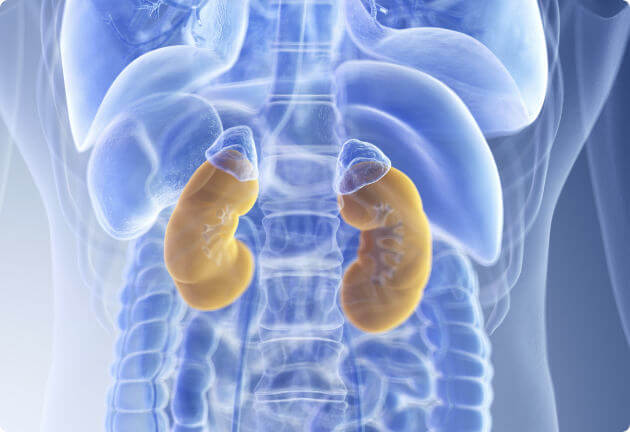
The function of the kidneys
The kidneys are two bean-shaped organs that are located in the back of the abdominal cavity, on either side of the spine. They are about the size of a fist and play a crucial role in removing waste products and excess fluid from the blood. The kidneys filter the blood and produce urine, which is then transported to the bladder through the ureters. Therefore, the kidneys are essential for the proper functioning of our bodies, and a disruption of kidney function can lead to various health problems.
Kidney function indicates how well the kidneys are able to filter waste products from the blood and produce urine. A commonly used measure to determine kidney function is the creatinine clearance test. This is a test that measures how quickly the kidneys remove creatinine from the blood. Creatinine is a waste product of muscle tissue and is constantly produced in our blood. When the kidneys are functioning properly, creatinine is quickly filtered out of the blood and excreted in the urine. If kidney function decreases, creatinine remains in the blood for longer. This value can be measured through a blood test.
Kidney function can vary from person to person and depends on various factors such as age, gender, and body size. In general, kidney function decreases as we age.
Below is an overview of the average kidney function values per age group:
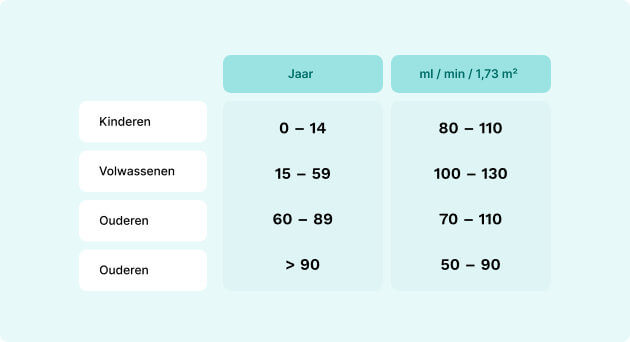
Common kidney problems and symptoms
Various problems can arise in the kidneys. Not all conditions lead to decreased kidney function. Additionally, some conditions are less severe than others. These complaints can range from mild symptoms to serious complications that pose a threat to our health. It is important to recognize and treat both decreased kidney function and different kidney problems on time to prevent further complications and preserve kidney function.

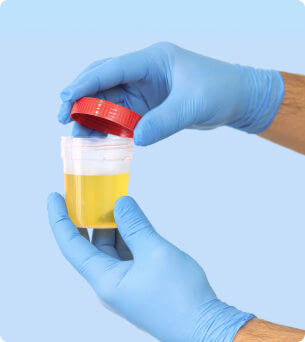
There are several kidney problems that can occur:
Kidney stones
These are hard accumulations of mineral crystals that can form in the kidneys and urinary tract. Kidney stones can vary in size and can cause symptoms such as:
- back pain
- abdominal and/or flank pain
- nausea and vomiting
- blood in the urine.
Urinary tract infections
These are infections of the urinary tract, including the bladder, kidneys, ureters, and urethra. Symptoms of a urinary tract infection include:
- painful frequent urination
- burning sensation during urination
- cloudy urine.
Renal dysfunction
This means that the kidneys are functioning less well and the body is less able to filter waste products and excess fluid from the blood. This can be caused by various conditions and factors. Renal dysfunction does not always produce symptoms. When there is renal insufficiency, then there is a low enough kidney function that we also speak of renal failure. You may experience symptoms such as:
- fatigue
- decreased appetite
- swelling of the hands and feet
- changes in urine production.
In addition, there is often high blood pressure and anemia.
Glomerulonephritis or glomerular inflammation
This is an inflammation of the kidney filters (glomeruli), which are responsible for filtering waste products and excess fluid from the blood. Glomerulonephritis can lead to symptoms such as:
- blood in the urine
- high blood pressure
- fluid retention.
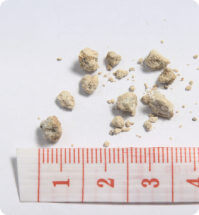
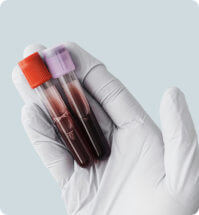

Causes of decreased kidney function
Renal dysfunction can be caused by various factors and underlying conditions. It is important to know the causes of renal dysfunction so that you can receive the appropriate treatment and prevent further kidney damage. Below we will discuss some common causes that can contribute to the development of decreased kidney function.

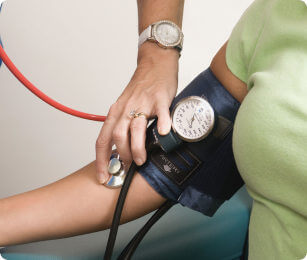

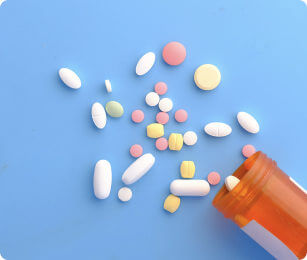
- Diabetes: Diabetes is one of the major causes of kidney problems. High blood sugar levels damage the blood vessels in the kidneys, leading to decreased kidney function. At Easly, you can easily and quickly find out if you have diabetes with the diabetes test.
- High blood pressure: High blood pressure is also a major cause of kidney damage. Prolonged high blood pressure damages the blood vessels in the kidneys and leads to decreased kidney function.
- Smoking: Smoking damages blood vessels in the body, including those in the kidneys, leading to kidney damage. This can result in decreased kidney function.
- Excessive alcohol consumption: Excessive alcohol consumption can cause kidney damage and lead to decreased kidney function.
- Medication use: Some medications can damage the kidneys and lead to decreased kidney function. This is especially true for medications commonly used for pain relief, such as NSAIDs (e.g., ibuprofen, naproxen, diclofenac).
Related tests



What to do with decreased kidney function and how can you improve your kidney function?
When there is decreased kidney function, there are several things you can do to support your kidneys and improve kidney function. However, it is important to remember that the severity of the kidney problem and the underlying cause of decreased kidney function can affect the ability to improve kidney function. In some cases, little to nothing can be done to improve kidney function, while in other cases, action can still be taken to support the kidneys and improve kidney function.


Improving Kidney Function? Then follow the advice below:
- Healthy diet: A healthy, varied diet is important for overall health, including for the kidneys. In addition, it is extremely important for kidney health not to consume too much salt, as this is a risk factor for kidney damage.
- Drinking enough water: Drinking enough water is important to keep the kidneys functioning well and to remove waste products from the body.
- Quit smoking: Quitting smoking can protect the blood vessels in the body, including those in the kidneys, and improve kidney function.
- Limit alcohol consumption: Limit your alcohol consumption to protect your kidneys.
- Medication use: Always consult your doctor about the use of medications if you have decreased kidney function. Some medications can further damage the kidneys.
How can I measure my kidney function?
If you are concerned about your kidney function, you can measure it with a blood test. At Easly, you can easily and safely measure your kidney function.
Conclusion
The kidneys are important organs in our bodies, responsible for filtering waste and producing urine. If kidney function is reduced, various symptoms may occur, leading to serious kidney problems. Through a healthy lifestyle and avoidance of risk factors such as smoking and excessive alcohol consumption, the kidneys can be supported and kidney function can be improved. If you are concerned about your kidney function or curious about the health of your kidneys, with Easly kidney function tests, you can easily determine if your kidney function is on track.
We offer various blood tests that can help detect potential health problems, including kidney problems. Our tests are reliable and easy to order and complete from the comfort of your own home. Invest in your health!

Sources:
- NHG richtlijn – Chronische Nierschade
- World Health Organization – Chronic Kidney Disease
- Nierstichting – Leefstijl
- Nierstichting – Over Nieren
- Federatie Medisch Specialisten – Richtlijnendatabase – Richtlijn Chronische Nierschade (CNS)







